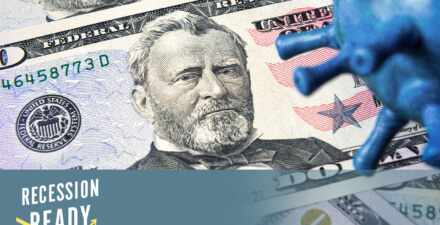More than 150 economists tell Congress: More relief needed to avoid ‘prolonged suffering’ and ‘stunted economic growth’
Led by Ben Bernanke, Heather Boushey, and Cecilia Rouse, statement endorsers include two former chairs of the Federal Reserve, four former chairs of the Council of Economic Advisers, and two Nobel laureates, among others
FOR IMMEDIATE RELEASE
CONTACT:
Erica Handloff, 202-746-5747
ehandloff@equitablegrowth.org
WASHINGTON – Today, the Washington Center for Equitable Growth released a statement imploring Congress to immediately pass a “multifaceted relief bill of a magnitude commensurate with the challenges our economy faces.” Led by Ben Bernanke, former chair of the Federal Reserve and distinguished fellow in residence at The Brookings Institution, Heather Boushey, president and CEO of the Washington Center for Equitable Growth, and Cecilia Rouse, dean of the Woodrow Wilson School of Public and International Affairs at Princeton University, the statement is endorsed by more than 150 scholars, including two former chairs of the Federal Reserve, four former chairs of the Council of Economic Advisers, and two Nobel laureates, among others.
Congress and the Federal Reserve have each provided unprecedented levels of economic support for those affected by the coronavirus recession, but the endorsers underscore the need for additional legislation. This relief will help avoid prolonged suffering, particularly in Black, Latinx, and Native American communities, all of which are disproportionately affected by both the public health and economic crises.
According to the endorsers, new legislation should provide, at a minimum, “continued support for the unemployed, new assistance to states and localities, investments in programs that preserve the employer-employee relationship, and additional aid to stabilize aggregate demand.” The signers also emphasize that “an adequate response must be large, commensurate with the nearly $16 trillion nominal output gap our economy faces over the next decade.”
A full list of signers is available here.
Following is the full text of the statement:
Dear Majority Leader McConnell, Minority Leader Schumer, Speaker Pelosi, and Minority Leader McCarthy:
The novel coronavirus outbreak has unleashed a recession that is unprecedented in the speed and severity of its decline. Since February, 1 in 5 workers has applied for unemployment benefits. And among people who were working in February, almost 40 percent of those in households making less than $40,000 a year had lost a job in March.
These parallel health and economic crises are especially damaging to many communities of color in the United States. Black, Latinx and Native American families are bearing a greater share of COVID-19 deaths and also face higher rates of unemployment than their White counterparts. Over the past 30 years, Black Americans have consistently faced unemployment rates twice as high as those for White Americans and are particularly hard hit during economic downturns. Evidence from the Great Recession indicates that a prolonged economic downturn will seriously damage the economic opportunities and wealth accumulation of all Americans, but especially of families of color.
Policymakers in Congress and the Federal Reserve responded to this crisis with unprecedented levels of economic support for those affected, but more needs to be done. If Congress fails to act, state and local governments face potentially disastrous budget shortfalls, and the Congressional Budget Office estimates the unemployment rate will likely be more than 11 percent at the end of the year.
Congress must pass another economic recovery package before most of the support in the CARES Act expires this summer. Given current projections of economic need, this new bill should provide, at a minimum, continued support for the unemployed, new assistance to states and localities, investments in programs that preserve the employer-employee relationship, and additional aid to stabilize aggregate demand. While the signers of this letter have different views on the optimal size and composition of the package, we all agree that an adequate response must be large, commensurate with the nearly $16 trillion nominal output gap our economy faces over the next decade, according to CBO estimates.
A full economic recovery will remain dependent on the public health situation, including efforts to develop effective therapeutics or vaccines. Insufficiently bold congressional policy responses to the Great Recession unnecessarily prolonged suffering and stunted economic growth. Congress should not make this mistake again. As Jerome Powell, the chair of the Federal Reserve, warns, the economic outlook is “highly uncertain and subject to significant downside risk.” In the opinions of the undersigned, Congress should address this risk, and the already occurring economic damage, by passing, as soon as possible, a multifaceted relief bill of a magnitude commensurate with the challenges our economy faces.
Signed,Dr. Ben Bernanke, Distinguished Fellow in Residence, Economic Studies Program, Brookings Institution
Dr. Heather Boushey,
President & CEO, Washington Center for Equitable Growth
Dr. Cecilia Rouse,
Dean, Woodrow Wilson School of Public and International Affairs, Princeton University
###
The Washington Center for Equitable Growth is a nonprofit research and grantmaking organization dedicated to advancing evidence-backed ideas and policies that promote strong, stable, and broad-based economic growth. For more information, see www.equitablegrowth.org and follow us on Twitter and Facebook @equitablegrowth.




